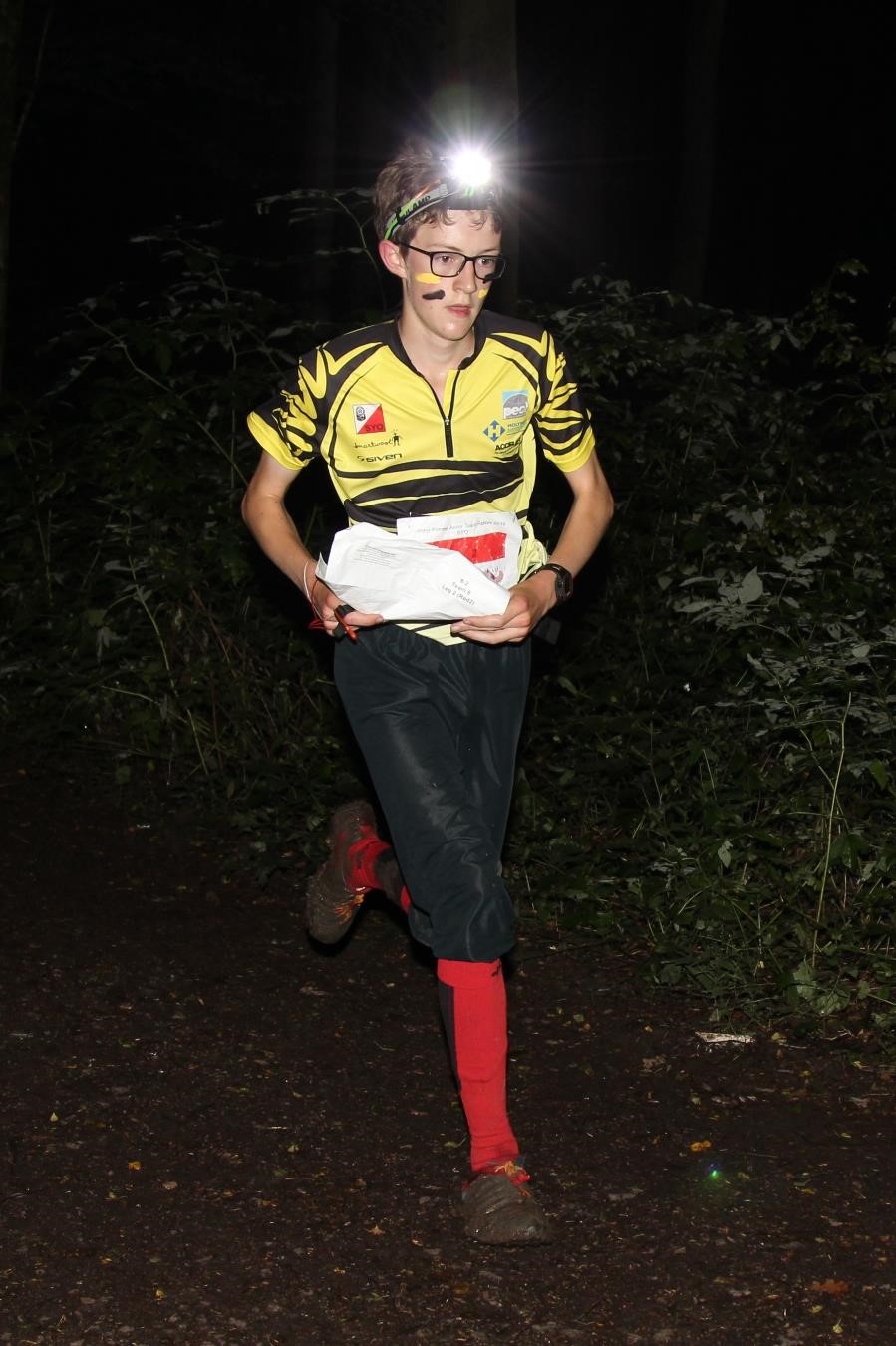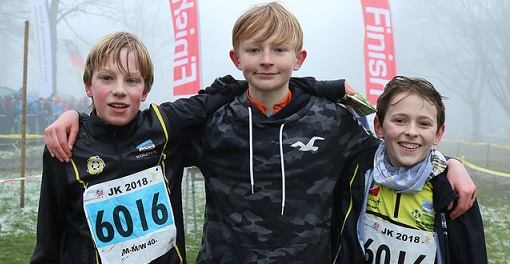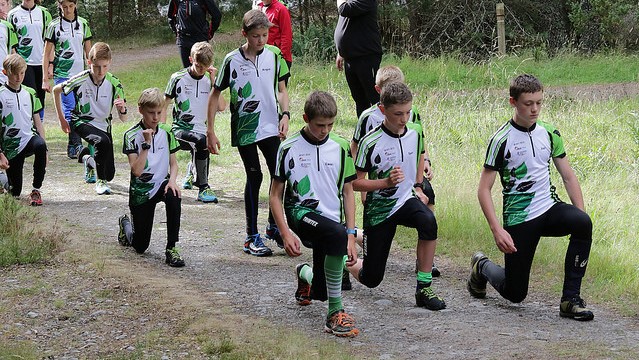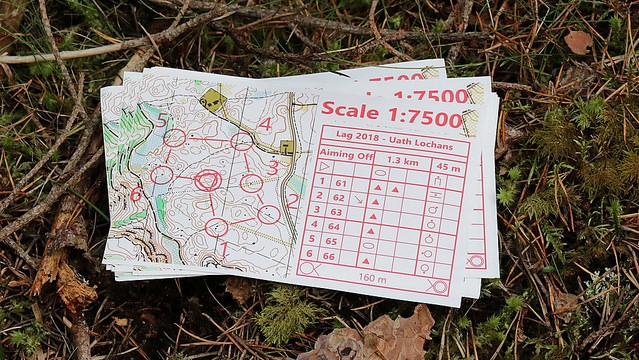A great place for Junior Newcomers to start...
If you don't get age classes, don't know how to train, or you're not sure what to wear out in the forest, there's no need to panic - just click the link below, and you'll be an expert in no time!
If you're a Junior who's just starting out in orienteering, this is a great place to come - you'll be an expert at all things Orienteering in no time! If you don't get age classes, don't know how to train, or you're not sure what to wear out in the forest, there's no need to panic - just scroll down and have a read. But if you're still unsure - or think we should add something to here - then please do get in touch...
In this Section...
Age Classes • Which Course? • Types of Orienteering • Events • Training • Videos • Clothing & Equipment • Jargon Buster • More Info
Age Classes
In orienteering, competitors are grouped into age classes, based on the year you were born, and your gender. This means that you are competing against other juniors of a similar age and ability. As a junior, you change age class every 2 years - so people talk about being in the 1st or 2nd year of their age class.
Examples of age classes are 'W16' (girls who are under 16 on the 1st Jan that year) or 'M14' (boys who are under 14 on the 1st Jan). M=Men, W=Women.
If this is all a bit confusing, you can just use this handy grid below to find out your age class: (correct for 2020)
| Age Class | M10 or W10 | M12 or W12 | M14 or W14 | M16 or W16 | M18 or W18 | M20 or W20 | ||||||
|---|---|---|---|---|---|---|---|---|---|---|---|---|
| Year of Birth | 2011 | 2010 | 2009 | 2008 | 2007 | 2006 | 2005 | 2004 | 2003 | 2002 | 2001 | 2000 |
Which Course?
The great thing about orienteering is that you can run whichever course you want to - whether that's long or short, easy or hard. If you have any questions, there'll always be someone you can ask at an event - whether that's one of our club volunteers, or just another junior - everyone will be happy to help find the course for you!
At our Schools events on Saturdays, the course you'll run for your age is normally a bit easier than at other events. These events are aimed at introducing new people to the sport, but are also great to help you improve - you could always run your course for the schools league, and then try a harder one to see how you get on.
At our other events, and ones run by other clubs, there are usually standard courses that you run for your age (but you can run whatever you want). Below is a grid explaining the differences between courses, and it also shows which age classes run which course, to give you an idea of what course you'd be expected to run at bigger competitions...
| Course | Length | Description | Junior Age Classes | ||
|---|---|---|---|---|---|
| White | 0.5-1.5km | This is usually the shortest course on offer and is aimed at young children who are moving off the string course (see below) and into the terrain. The courses are very simple and stick to main paths. | |||
| Yellow | 1-3km | These courses are slightly more technical than the white courses with controls slightly off the paths, but on easy to find line features such as streams or walls. | M10 | W10 | |
| Orange | 3-5km | The orange courses are the usual start point for adult beginners at orienteering. Here you will be presented with basic route choice options and will use simple compass skills. | M12 | W12 | |
| Light Green | 3.5-4.5km | Here the technical and physical difficulty is increased again. The courses are slightly longer than orange and utilise point (e.g. boulders) and contour features. | M14 | W14 | |
| Green | 4-5km | These courses are at the most technical level (TD5) and are aimed at those wanting a relatively short run with a technical challenge. | W16 | ||
| Blue | 5-7km | The courses and those below are all still at the highest technical difficulty, but are longer and more physically challenging than green courses | M16 | W18 | |
| Brown | 7km+ | The brown courses are technically difficult and fairly long. | M18 | W20 | |
| Black | 10km+ | These are the longest courses at standard orienteering events with typically distances of over 10km | M20 | ||
Types of Orienteering
The above courses are for standard orienteering events, such as those in forests or on moorland. There are other types of events such as:
- Night - typically shorter distances than day events, a headtorch is a must (or a good torch for your first event)
- Relay - as the name suggests, a group of orienteers in teams of 3-8 competeing in a team, one after the other
- Sprint - these are fast-paced events that are only a few kilometres in length but have many controls often close together
- Middle - middle distance events are a cross between sprint and long - generally shorter in length than a long, and with controls relatively frequently like a sprint, but generally held in terrain, like woods or moorland.
- Long - these are the longest of all orienteering courses, with them often having long routechoice legs across sometimes wild terrain.
- Urban - these events are held in town and city centres or housing estates. Urban races are held annulally in large cities such as London, Edinburgh and of course Sheffield.
- Mountain bike - longer (both in distance and time) than typical oienteering events and less frequent, but still good fun. In some (colder) countries you even get Ski-O!
- Score - the aim for these events is to visit as many controls as you can, usually in a time limit. The key is that you can visit them in any order, unlike traditional orienteering where you have to stick to a set course.
- A combination of the above - urban sprints are quite common, as are night scores (in the winter). You can get sprint relays, and even night relays... anything's possible when orienteers are involved!

Events
Once you're a member of the club, you can attend pretty much any event, anywhere in the country! Events can range from small local ones that can be used to practice your technique, to big national championships, with medals and trophies on offer.
Have a look at our Junior Events list for the dates and details of junior competitions (where you can compete for SYO) and bigger competitions and events that you might find fun to try.
A list of our own events and trainings can be seen on the SYO Events List - this list includes events that are in the Schools League. For a list of just the Schools League events, have a look on our dedicated Schools page. For a list of all events in the country, see the BOF Fixture's List.

Major Events
Once you get a bit more competent at orienteering, you're welcome to enter some of the bigger events, such as the Northern Champs, British Champs and Jan Kjellström Weekend (anyone can compete at the British Champs, regardless of their experience). But as these events are bigger, there's a few things that may be different to what you're used to. Of course if you need to check anything, please get in touch...
Pre-entries
For larger events, there is usually the option to enter in advance. Watch out though - often pre-entry closes one or two weeks before the event, and sometimes there is no option to Enter On the Day (EOD). Also there can be a number of closing dates - those that enter earlier will get a cheaper price. Pre-entering also guarantees that you can run the course you want to. There are 2 websites normally used for pre-entering events: Fabian4 and SI Entries, but a link will be given in the final details.
Start Times
For major events, you will usually be given a start time. This is a set time that you start at, often because the event is so big, so queues can be avoided at the start. Sometimes the start is remote (you need to walk some distance to it) so watch out for this, as you'll need to leave plenty of time to get to the start on time.
Training
They say Practice makes Perfect, but how can you train for Orienteering?!? You can roughly divide it into the Physical (running) and Technical (navigating) aspects. Below we've given the opportunities available to you to train, as well as some ideas on how to practice - but remember these aren't the only ways to practice and improve, and you definitely don't need to do it all. Often its quality, not quantity...
For some other ideas, have a look at our Junior of the Month profiles. There's some great top tips over there!
Training Opportunities
Here in SYO, we offer 2 sorts of regular training sessions:
- Club Night - these run every Wednesday evening 7-8.30pm, at High Storrs in winter, and outside on areas in the summer months. The night is divided into 2 parts: a Physical session (like Intervals, Circuits etc.) and a Technical Session (including practice of key skills, playing on orienteering simulators and score competitions). This is a great social way of improving your orienteering. Find more details on the Club Night page.
- Saturday Afternoon Coaching Sessions - these are FREE for club members. They're held on various areas around Sheffield about once a month, and give you the opportunity to work on key skills that you use whilst orienteering. There are 3 groups for juniors of all ages, and even a group for adults - so parents can join in too!
In addition, once juniors become M/W12s, they can be selected to be a member of the Yorkshire and Humberside Junior Squad. Once you're selected for YHJS, you can go to their training days and weekends, that will all help you to improve your orienteering. More info can be found on the YHJS website.
To get involved in these opportunities, or to find out more, please get in touch!

Physical Training Ideas
- Go on a weekly run. This should be about as long (time or distance) as what you'd expect to run on an orienteering course
- Join a running club - This could be at school, or one of the local ones: Hallamshire Harriers and Dark Peak Fell Runners
- Take part in the SFSS Cross Country League - these are a series of races for school children in Sheffield held in autumn/winter. See more details: Junior and Senior Leagues. You could also ask your PE department at school about this.
- Do some 'sessions' - such as Intervals or circuits. These are always best when in a group, but stretching can always be done in front of the TV!

Technical Training Ideas
- Familiarise yourself with the symbols used on maps and control descriptions. This will make it so much easier to navigate when under pressure.
- Practice key skills - such as compass bearings, and routechoice planning, just on paper when sitting at home.
- Look at maps for competitions coming up, also known as 'Map Geeking'. These maps can usually be found on Routegadget, where you'll be able to find previous courses from the area, as well as the old map. It can help to work out routechoices for legs on the area - you'll then be an expert at planning routes by the time you get to run there!

Videos
Think Fast, Run Hard, Go Orienteering!
These videos, presented by athletes from the GB Elite Orienteering Team, cover a range of techniques. In just 5 mins, each aims to help you improve one key aspect of your orienteering:
Setting the Map
Charlotte Ward
Using the Compass
Hector Haines
Attack Points
Megan Carter-Davies
Aiming Off
Charlotte Watson
Large Contour Features
Chris Smithard
Route Choice
Alice Leake
Intricate Contours
Kris Jones
Simplification
Ralph Street
International Orienteering Federation
Equally, these 3 videos from the International Orienteering Federation focus on just 3 of the basic skills needed in orienteering. They're a totally different style to the ones above, but well worth a watch - they're animated, and quite good fun!
The Map
Planning your Route
Finding your Way
Clothing & Equipment
Coming soon
Attack point? Line features! Chasing start?!?
Orienteering can be very confusing, especially when you're just starting out - there's so many words that everyone (except you) seems to know the meaning of! But you can become an expert in no time with this handy Jargon buster from Mole Valley Orienteers, which explains the meaning of loads of O-words - from Map bag to Map memory.
More Information
If you've still got questions, or just don't get something, then don't worry! Any SYO member (junior or adult) will be happy to help you at an event. The junior coaches & officials are also great people to speak to - and you can contact some of them by email from here.
Particularly if you're new to orienteering, you could also have a look at our Newcomers page - it has even more useful information (including stuff for adults), links to pages that explain things further, and gives details about becoming a member of SYO.
